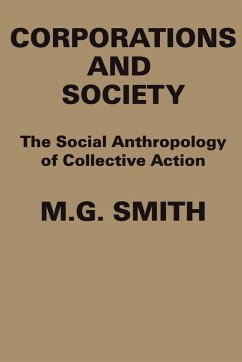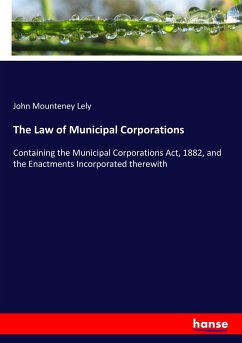Few would doubt that social science is in serious need of a new conceptual framework for the study of human organizations. For some time now such a framework has been sought in the notion that societies are functional systems, in which the individual sectors--economy, religion, government and so on--can be seen as subsystems dependent on each other and integrated within a whole. But in spite of the major advances in research which modern systems theory has brought about, it is based inevitably on a priori assumptions which are often at variance with the facts, or require the facts to be interpreted in a special way to fit the theory. In this book Smith puts forward an alternative framework, by developing the concept of the corporation. While most people nowadays think of corporations as large industrial enterprises, Smith employs the term in its older, Common Law sense of an established social unit. By studying the components of social life in this way, as discrete entities rather than as parts of a cohering system, corporation theory is able to treat social phenomena empirically and so avoid the unverifiable ideology-laden postulates of the traditional system-model. Corporations and Society is made up principally of key articles written by Smith over several decades. To these have been added three newly written, unpublished pieces of which the last--a penetrating essay on the Caribbean--is one of the longest in the book. Covering such wide-ranging topics as lineage systems, government, stratification, law, race relations and pluralism, these essays by a distinguished anthropologist show how extensively, and with what power of analysis, the theory can be applied.
Hinweis: Dieser Artikel kann nur an eine deutsche Lieferadresse ausgeliefert werden.
Hinweis: Dieser Artikel kann nur an eine deutsche Lieferadresse ausgeliefert werden.








